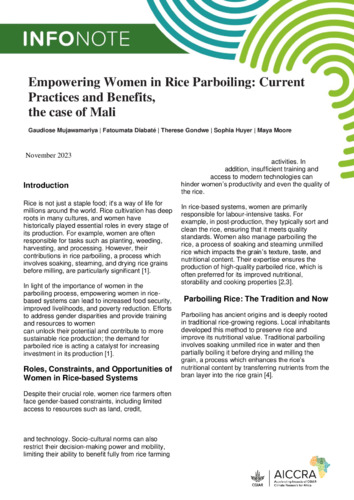Empowering Women in Rice Parboiling: Current Practices and Benefits, the case of Mali
Abstract
Rice is not just a staple food; it's a way of life for millions around the world. Rice cultivation has deep roots in many cultures, and women have historically played essential roles in every stage of its production. For example, women are often responsible for tasks such as planting, weeding, harvesting, and processing. However, their contributions in rice parboiling, a process which involves soaking, steaming, and drying rice grains before milling, are particularly significant. In light of the importance of women in the parboiling process, empowering women in rice-based systems can lead to increased food security, improved livelihoods, and poverty reduction. Efforts to address gender disparities and provide training and resources to women
can unlock their potential and contribute to more sustainable rice production; the demand for parboiled rice is acting a catalyt for increasing investment in its production.

